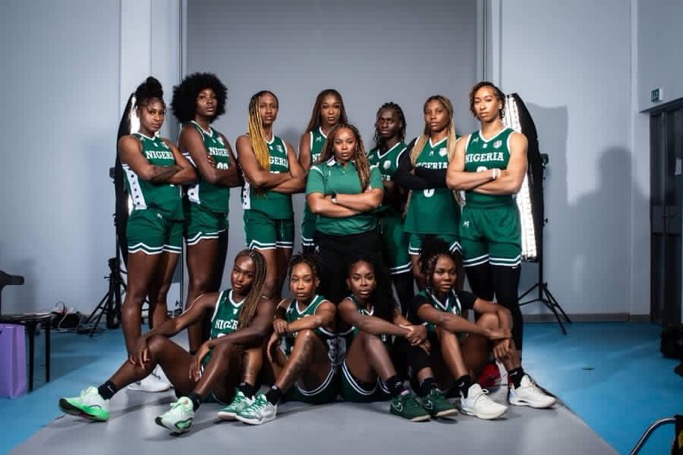Nigeria’s women’s basketball team, D’Tigress, cemented their dominance on the continent after defeating Mali 78–64 in the final of the 2025 FIBA Women’s AfroBasket in Abidjan, Côte d’Ivoire, on Sunday.
The historic win marked Nigeria’s fifth consecutive AfroBasket title—a new record in African women’s basketball—and their seventh overall.

With this victory, Nigeria surpassed Senegal’s long-standing record of four straight titles between 1974 and 1981, becoming the first team in history to win five in a row. The win also extended Nigeria’s unbeaten run in the AfroBasket tournament to 29 games, stretching back to 2015. As a result, D’Tigress have secured automatic qualification for the 2026 FIBA Women’s World Cup.
Despite a strong start that saw Nigeria launch into a 12-0 lead early in the game, it was Mali who surprisingly took the first quarter 26–21. However, Nigeria responded well in the second quarter, leveling the score 41–41 at halftime. Coach Rena Wakama’s side regained full control in the second half, taking the third quarter 20–15 and closing the game with a dominant fourth quarter, which they won 17–8.

Nigeria’s performance was defined by superior shooting, clinical execution, and composure in key moments. They shot 49.18 percent from the field, compared to Mali’s 37 percent, and were particularly efficient inside the paint, converting nearly 60 percent of their two-point attempts.
Amy Okonkwo was once again the standout performer for Nigeria. Playing the full 40 minutes, she finished with 19 points and nine rebounds, earning her the tournament’s Most Valuable Player (MVP) award for the second consecutive edition. Guard Ezinne Kalu led all scorers with 20 points on 53.85 percent shooting. She also contributed five assists and four rebounds, and was perfect from the free throw line.
Murjanatu Musa was dominant in the paint, pulling down 12 rebounds and adding nine points and three steals, while veteran point guard Promise Amukamara controlled the tempo with a game-high 11 assists. Victoria Macaulay came off the bench to add 10 valuable points, helping Nigeria maintain their scoring rhythm.
Though Mali edged Nigeria in rebounding 37–36 and outscored them off the bench 26–22, the Nigerians were more efficient and disciplined. They committed just 14 turnovers, the same as Mali, but were able to convert their opponent’s errors into 17 points. Nigeria also outscored Mali in fast-break points (10–5), second-chance points (8–5), and points in the paint (40–26), all of which proved decisive in the final outcome.

President Bola Tinubu congratulated the team for their record-breaking feat, describing their performance as a source of national pride. “You did it, girls!” he wrote in a post on X. “D’Tigress’ superb performance to become 5x consecutive Champions of Africa and seventh overall. Well done, Coach Rena and the team. You have made Nigeria proud.”
For Mali, the loss marked their third defeat in an AfroBasket final, following previous heartbreaks in 2009 and 2021. Their youthful side, averaging just 24 years of age compared to Nigeria’s 28, showed flashes of brilliance but lacked the experience to overcome the defending champions. Players like Sika Koné and Djeneba N’Diaye impressed with their energy and intent, but Nigeria’s experience and composure under pressure ultimately made the difference.
The final also added another chapter to the growing rivalry between Nigeria and Mali. Heading into the match, both teams had won three games apiece in AfroBasket meetings since 2011. Sunday’s win tipped the balance in Nigeria’s favour.
Elsewhere, South Sudan claimed their first-ever AfroBasket Women’s medal by defeating Senegal 66–65 in the third-place match. South Sudan, along with Mali and Senegal, will now join Nigeria in the qualification pathway for the 2026 FIBA Women’s World Cup.
While Senegal still lead the all-time AfroBasket Women’s title chart with 11 championships, Nigeria’s decade-long dominance shows no signs of slowing down.









